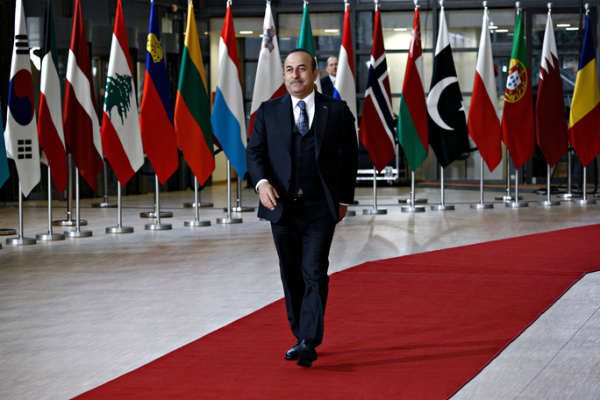The President’s Man: Mevlüt Çavuşoğlu and Turkey's Changing Foreign Policy
By Reuben Silverman
January 31, 2022
Turkish Foreign Minister Mevlüt Çavuşoğlu has served in his post longer than any other member of the president’s current cabinet. In fact, first appointed in 2014, he has now served in the position longer than any other Turkish politician in the past seventy years. Yet, despite this long involvement, Çavuşoğlu himself is seldom discussed. There are no grand ideas associated with him as there were with his predecessor Ahmet Davutoğlu (2009-2014). Were he to be replaced in a cabinet reshuffle tomorrow, it is unlikely that he would establish a party of his own as Ali Babacan (2007-09) and Davutoğlu have both done. Nonetheless, like his predecessors, Çavuşoğlu embodies his era. Thinking about his time in office can help us reflect on the past decade of AKP foreign policy.

Turkey, Ukraine and Russia: The Illusion of Neutrality
By Natalia Konarzewska
March 4, 2022
Turkey insists on maintaining close relations both with Russia and Ukraine, but this balancing act has become near-impossible to maintain after the Russian invasion of Ukraine. A week into the invasion, Kyiv received a new batch of drones from Turkey that have already proved their effectiveness against the Russian forces. Even though Turkey will seek to maintain a balance as far as possible, its strong military ties with Ukraine speak of its geopolitical ambition to contain Russia. Turkey’s relation with Russia is transactional, while its commitment to the defense of Ukraine is an expression of Turkey’s strategic vision and its adherence to the geopolitical goals of the Western alliance. That will ultimately prove decisive.

Turkey is Expecting a Restart with the U.S.
By Halil Karaveli
January 23, 2017
The Kurdish question has, once again, complicated Turkish-American relations. The rhetoric of anti-Americanism remains useful to whip up and mobilize nationalist opinion. Yet, Erdoğan’s Islamists are not any aspiring anti-imperialists. What they want – and what they expect that Turkey is now going to get – is simply a better “business deal” with the United States under Donald Trump.





